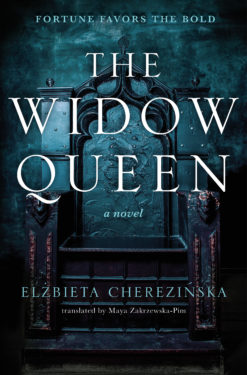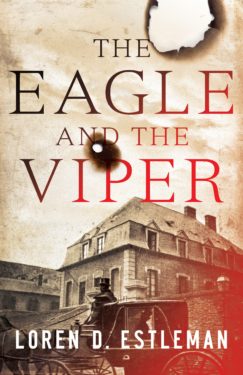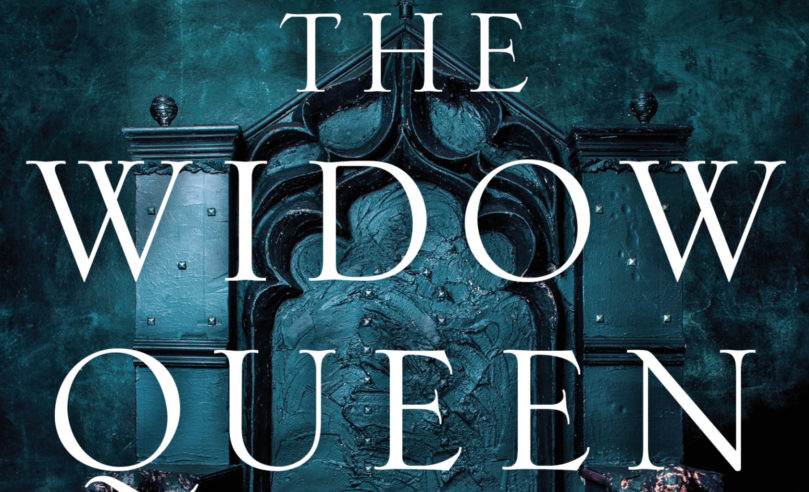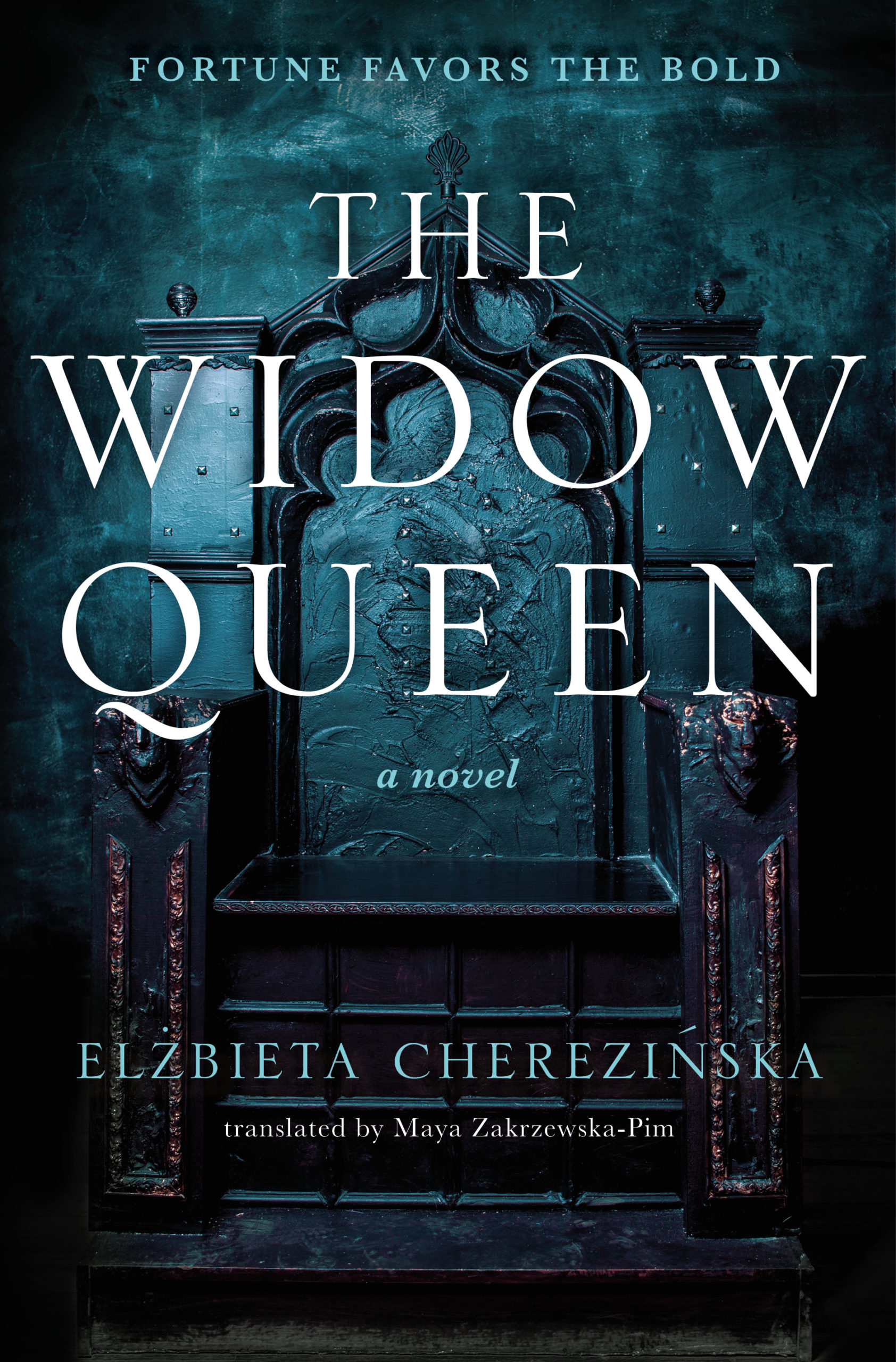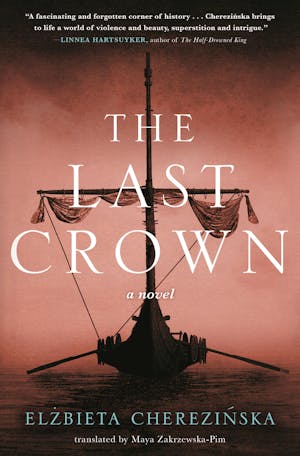 Across Baltic shores, English battlegrounds, and the land of Northen Lights, The Last Crown is the follow up to The Widow Queen, and the epic conclusion of Swietoslawa’s journey from Polish princess to Queen of Denmark & Sweden and Queen Mother of England.
Across Baltic shores, English battlegrounds, and the land of Northen Lights, The Last Crown is the follow up to The Widow Queen, and the epic conclusion of Swietoslawa’s journey from Polish princess to Queen of Denmark & Sweden and Queen Mother of England.
The Last Crown will be available on September 6th, 2022. Please enjoy the following excerpt!
CHAPTER ONE
THE BALTIC SEA
The night from which the moon was stolen is cold and gloomy. It takes its vengeance with irregular gusts of wind and waves which treacherously flood the deck. Unpunished and confident in its invisibility, the night tangles the ropes, tugs at the sails, and whispers misleading directions. Its scrawny arms sink into the ocean’s depths, searching for drowned men and drowsy fish. Running its fingers through the waters, it picks out that which cannot be revived and that which cannot rot in salty waters. A moonless night is not particular, but it’s in a rush, chased by the dawn on its heels. It wants to surprise its pursuer with a deck decorated by its dead catches. It throws its treasure overboard with a hollow splash and disappears to escape the notice of dawn’s scout, daybreak.
Astrid watched Tyra doze. The princess was snoring gently with her mouth open. It’s because of the poppyseed brew I gave her, Astrid thought. Or she has a cold. Even princesses get blocked noses, after all.
Morcar Frog had provided every comfort, or at least that which was possible aboard a merchant ship. There was a small tent stretched out between the gunwales which offered protection from the wind, sun, and rain, as well as from the crew’s curious stares. They were also given warm blankets and almost-warm meals. And wine, good red wine from the merchant’s supplies. Astrid sipped it as she waited for Tyra to wake. She wasn’t thinking about her, she was thinking about herself. About how life always seemed to place her near Olav but never quite in the right position. She’d thought that there could be nothing worse than bringing his son into the world, but fate had written another verse of this song and now she had aided Tyra’s abduction so that this foreign girl could become Olav’s wife.
oreign girl could become Olav’s wife. If only it had been Świętosława. Her salty sister, so sharp and fierce. Astrid could have done it for Świętosława and been happy for her, but no, she was acting against her sister as much as against her own heart. “My lady is in labor!” She’d heard the servants’ cries when she’d slipped unnoticed through the kitchens of Roskilde’s manor. If she had gone to the queen’s chambers instead of to Tyra’s solitary rooms . . . If she had broken her word . . . No, she would never have done that. She had always been too mature for that. Mieszko would call her his “wise daughter Astrid.” Yes, she was wise. And what good had that ever done her?
Tyra opened her eyes.
“Where am I?” she whispered.
“On a ship.”
Tyra rose from her makeshift bed and leaned on one arm. Sleep had undone her three braids, and strands of hair, damp with sweat, spiraled in locks by her face. She rubbed her forehead and swollen eyelids.
“On a ship . . .” she repeated. “So, it worked, did it?”
“Yes. Do you want some wine?”
“Is it Friday today?”
“Yes.”
“No, I can’t today. I drink only water on Fridays.”
“As you wish,” Astrid replied as she took another gulp. “I find wine helps with the seasickness.”
Tyra blinked. Astrid hated women who fluttered their eyelashes. She was always surprised that men fell for such a cheap trick.
“So, you’re my savior,” Tyra said. “I’m sorry, but in all the excitement I’ve forgotten your name.”
“Astrid.”
“Astrid . . .” Tyra seemed to regain her senses and reached for the pouch at her belt, rummaging in it until she pulled out a denar. “Duke Burizleif’s sister?” She looked at Astrid’s brother’s name etched into the coin.
“Yes.”
“I hadn’t expected that Master Gretter’s mission would bear fruit so soon. Your brother is an uncommonly proactive ruler, and I will be forever grateful to him for saving me from Sven’s clutches. I’m very curious to meet my future husband.”
What is this? Astrid wondered. Does she always talk this way?
“Tell me about my sister,” she requested, swallowing more wine.
“Sister?” Tyra looked surprised. “Oh, forgive me, my lady! Where’s my head! The queen is your and your brother’s sister . . .”
What a dolt! Astrid thought, immediately blaming the insult on the wine she had consumed. Since her cup was empty, though, she poured herself some more.
“Yes, I met your sister in church and only then did I know her true nature. Because she is so regal in front of the people. Regal and beautiful. That monster Sven forced me to attend his feasts, where I would see the queen from afar. But she . . . forgive me, Astrid, but at the feasts your sister was just a queen to me, distant and foreign. She has two lynxes on a leash that walk with her, and before her walks a great, bald monster with a scarred face. There is also the boy who has a wolf’s eyes and the horrible Jorun, Sven’s comrade, and his axemen who chant your sister’s name: “Sigrid Storråda!” My brother wants her to be known as Gunhild, but it hasn’t stuck at court . . . Can I have some water?” Tyra paused and moistened her dry lips.
“Here.” Astrid handed her a cup.
The princess swallowed a few mouthfuls, but when she noticed Astrid watching her, she slowed down.
“Are you hungry, my lady?” Astrid asked.
“Perhaps, but I told you that I fast on Fridays. What should I call you? If you’re Duke Burizleif and Queen Sigrid’s sister, shouldn’t I be addressing you as a princess?”
“Call me Lady of Wolin, that will suffice. You were telling me of my sister.”
“Oh, yes. What was I saying?”
“You told me her new name, that her husband wanted to call her Gunhild.”
“An awful idea. The old Queen Gunhild, though it is embarrassing to say since she was my aunt, practiced . . . do you know?” Tyra fearfully made the sign of the cross and looked at Astrid meaningfully as she whispered: “Seidr. Do you understand?”
“She was a witch,” Astrid said.
“Yes. And she died like a witch. They threw her into the swamp.” Tyra shuddered at the thought. “No wonder the name didn’t take. The people know that your sister is a Christian queen, but Sven’s men, the ones who traveled with him to Sigtuna, decided they had brought back Sigrid Storråda, and that’s what they prefer to call her. Astrid!” Tyra suddenly grabbed her hand. “Is the queen privy to our plans? Sven will suspect her, he knew that we had a good relationship, that we met for mass . . .”
“No, my lady. My sister knows nothing,” Astrid replied, feeling nauseous.
She stood up and shakily walked out of the tent. She had to lean over the gunwale to vomit. The wine had done nothing for her seasickness or her guilt. Świętosława’s bright face stubbornly kept appearing in her mind’s eye. By the time she returned to Tyra, the girl had untangled her hair and was brushing it out.
“I should prepare to meet my husband,” she said, a blush blooming on her cheeks.
As if on cue! Astrid thought with distaste.
“It will be another week or two before you reach him, but you can start preparing now if you wish,” she told the princess.
“So long?” Tyra was surprised. “The sailors say the route to Nidaros is much shorter.”
“You won’t be sailing the whole way. Morcar will drop us off soon and we will proceed on horseback. We must lose our pursuers.”
Tyra looked worried, as if she only now realized that the entire journey was dangerous, not just the escape.
“Tell me, Astrid, how did you get me out of the manor? How did I reach the ship? Forgive me, but I can’t recall . . . I only remember the moment in which you entered my room and showed me the coin to prove that Duke Burizleif had sent you, and you said: ‘You’ll be safe when you wake up,’ and then you gave me something to drink. I don’t remember anything else . . .”
“I gave you a brew from poppyseeds,” Astrid told her.
Because I suspected that courage was not your strong suit, she thought, but she kept it to herself.
“When you fell asleep, we hid you in a great chest in which Morcar’s men had carried the weapons Sven had purchased earlier. We then carried you on board, right under your brother’s nose.”
“What?”
“Sven sat comfortably in a great chair as he examined Morcar’s shiny merchandise and we walked right past him.”
“That’s incredible!” Tyra clapped her hands in joy.
Will Olav be happy with her? Astrid asked herself, feeling her stomach grow heavy again. I’m vile; it is envy that speaks through me, she thought, bringing herself down even further
“What about the pursuers?” Tyra asked. “Do you think he sent any?”
“I’m certain he did, and I hope that his men were fooled by the group of riders who went west, toward Trelleborg. It was their job to draw Sven’s attention away from the port.”
“Is Morcar in danger?” Tyra asked in a whisper.
“Don’t be naïve,” Astrid retorted. “Everyone who played a part in this scheme faces Sven’s wrath.”
“Forgive me, Lady of Wolin. It’s the poppyseed which has robbed me of my clarity of thought.”
They spoke no more. Astrid lay down with her back to Tyra, pretending to be asleep. She wished she really was asleep so she could get away from her own intrusive thoughts. She had tricked Świętosława and undertaken the mission to bring Tyra out of Roskilde for the sole purpose of seeing Olav again. That was the truth, the embarrassing secret which weighed down her conscience. She had agreed to help in this endeavor only so she might look into his pale, translucent eyes once more, so she could smell the salt on his hair and hear his voice. She wanted to see him after all the years that had passed since Geira’s death, after everything that had happened. Damn it! What a fool I am! she thought with disdain and pulled the blanket over her head. Before sleep took her, she had made up her mind.
The next morning, Morcar’s ship sailed into a small bay by the estuary of Göta älv. Geivar, the chief of the house of scouts from Jom, was waiting for them.
“My Lady of Wolin,” he greeted Astrid when she stepped onto dry land. “Is everything all right?”
“Yes, Geivar. Princess Tyra is with us. I think that she could use a day of rest before we move on.”
“Whatever you think best, Astrid,” Geivar replied.
“Is that your husband, the famous Jarl Sigvald, the Jomsviking leader?” Tyra asked.
“No. This is the chief of silence.” Astrid chuckled. “You have the honor of meeting Geivar, who is the eye and ear of Jomsborg. He will be responsible for your journey from here. And if it makes any difference, he used to be a companion to Olav Tryggvason.”
“I’m happy to meet you, Geivar.” Tyra bowed her head in greeting and, unexpectedly, smiled. “It’s extraordinary! Your husband abducted Sven during the war with Eric, while you, Astrid, have abducted me from Roskilde, and now we can both go to Olav under the care of his old friend. It is all so exciting . . .”
“Forgive me, my lady, but we must alter our plans,” Astrid interrupted her sharply. “I won’t accompany you any further. I will return to my husband.”
POLAND
Bolesław stared gloomily at the silver coffin lid.
“You did the best you could,” said Zarad, but his voice sounded hollow. “You paid for Adalbert’s body with its weight in silver, you brought back his remains, you even managed to get back his head.”
“This was Sobiesław’s last brother. My uncle killed his entire family two years ago.”
“My lord,” Zarad argued, “he still has a half brother. The one who escaped the Prussians. Radim, or whatever his name was . . .”
“It’s strange.” Bolesław leaned over the coffin lid and saw his own distorted reflection in the polished silver. “The pagans killed only Adalbert, sparing his brother and vicar Bogusz. Do you have any idea why?”
“There are two reasons I can think of. First, Radim and the others fled like cowards and left Adalbert to face the Prussians alone. Second, the pagans, by killing only the bishop, wanted to send a message to communicate that while they are refusing the mission, they do not want a war.”
“You’re right,” Bolesław agreed distractedly. He leaned over the coffin lid again. “It’s ghastly.” He showed Zarad his reflection in the lid. “And true.”
“What do you mean, my lord?” Zarad sounded worried. “I’m only a simple soldier. If you want to read into some signs or something, perhaps I should call for Bishop Unger?”
“I’m the one responsible for the destruction of the entire Sławnikowic dynasty,”* Bolesław said. “I supported their ambitions, their rivalry with the Přemyslid dynasty. They were important to me—such strong allies, the dukes of Libice . . .”
“Do you blame yourself, brother?” a deep voice asked from the direction of the chapel wall.
At first, Zarad and Bolesław glanced at each other in terror.
“Ghost,” Zarad whispered.
But it was Sobiesław who emerged from the shadows, clad in dark penitential robes.
“I didn’t mean to eavesdrop,” he said apologetically. “I was watching over the body and I fell asleep on the bench by the wall. I haven’t left this place, even though I know it won’t change anything. My headless brother will not rise again.”
Bolesław felt uneasy knowing that his friend had overheard his words. He saw Sobiesław’s dirty hair and untrimmed beard. The duke of Libice was suffering. It was only recently that his family had been rivalling the Přemyslids for influence in Bohemia. They had been powerful, wealthy, famous, and independent. Adalbert had twice abandoned the Praguian diocese; Sobiesław had fought at his side against the Veleti. In light of the swiftly deteriorating relations between the Přemyslids and the empire, their joint plan to overthrow the duke of Prague and replace him with Sobiesław seemed to be so close to fruition. His uncle Boleslav had cut it all short with the cruel murders, and now the death of the bishop of Prague when on a mission in Prussia concluded the destructive act.
Sobiesław came closer, throwing an arm around Bolesław and forcing them both to lean over the coffin. The smooth surface of the silver reflected both their faces.
“Do you see, brother?”
The duke could smell his stale breath.
“The fault is not yours alone, share it with me.” Sobiesław let go of Bolesław and laughed like a madman. “But it doesn’t matter, it’s an illusion anyway. Anyone who leans over my brother’s coffin would feel guilty. The living like to see themselves in the deaths of others. Do you want to know who is responsible for all my family’s misfortunes? Here he is!”
He retrieved a silver coin from his pouch and placed it on the coffin lid with a clang. Bolesław picked it up. There was an eagle taking flight on one side, and a hand holding a dagger on the other.
“And there’s my name around the edge. By hammering ‘Duke Sobiesław’ onto the coin I condemned the dynasty of Libice myself. My own family!” Sobiesław’s eyes flashed wildly. “The Přemyslid duke couldn’t bear it and paid me back with his blade. If we were innocent, would God have allowed Adalbert to have died such a horrible death? No. God has pointed a finger at us. He wanted us to vanish from this world . . .”
“Sobiesław!” Bishop Unger interrupted him as he entered the chapel. “Be silent! You cannot judge vanity with vanity. It is not for you to deliver God’s judgment; it is not your place to try to understand His perspective. Even amidst your suffering and grief for your loved ones, you must maintain some sense. Do you know why? To avoid questioning God’s will. Control yourself, Duke!”
Sobiesław took a step back, while Unger issued orders to the servants who followed him:
“It’s too dark. Light the torches and chase away the shadows which do not suit the Lord’s light, because here I bring the word of God to those in need.”
Bolesław took a careful look at Unger. His bishop was not a man to waste his words.
“Are you feeling all right, Unger?” he asked.
“Perfectly. My lord, Sobiesław, you have seen your own reflections in Adalbert’s coffin as you searched for those responsible for his death. Look again, now that the chapel is brightened by light. What do you see?”
“The radiance reflected off the metal,” Sobiesław muttered.
Only in the light did it become clear how deeply grief’s claws had wounded him. The lines on the face of the duke of Libice were covered by a dirty beard, while the strands of unwashed hair made him look like a grubby old man, though he was only just older than Bolesław.
“Radiance,” Unger repeated. “You’re right. Today it is the metal that is radiant, but tomorrow it will be your brother’s heavenly fame. Adalbert, in giving his life while on mission among the pagans, in the moment of his death became the Church’s martyr. Its Holy son. Do you understand?”
It won’t bring back his brother, but perhaps it might bring him some comfort, thought Bolesław.
“He knew the wealthiest men of this world,” Unger continued. “He was friendly with Rome’s leaders. Emperor Otto referred to him as his dear companion on his earthly path. A martyr who walked among us like Christ amidst the Apostles. Do you understand?” Unger asked hopefully, but he shook his head when he looked at them. “No, you don’t.”
Bolesław felt as if he was in the middle of a lesson, but thankfully Unger did not wait for an answer.
“In such times when the Church of Pope Sylvester searches for new saints, saints who can rise to the challenges with which the modern world faces them, we, in Gniezno, have the remains of a saint who gave his life for his faith, just as was done in the old days. We have a treasure!” Unger exclaimed, and Bolesław finally understood.
“How long will the canonization take?” he asked soberly.
“A martyr is canonized on the day of his death.” Unger smiled. “Though we will, of course, send a delegation to Rome. I expect Emperor Otto will be supportive, since after all he was the one who sent Adalbert on his mission.”
“No, Bishop,” Bolesław announced firmly. “From now on this is not the emperor’s mission, but mine. Otto sent him to the Veleti and we’ve all agreed that was unwise because of the war. I sent him to the Prussians, where he became God’s martyr.”
“I admire your wisdom, my lord.” Unger bowed his head. “Your mission. What would you say to finding a middle ground? We could say it’s a joint mission? Yours and the emperor’s? That would help to spread Adalbert’s cult.”
“Yes, all right. But only because you have just taught us that vanity is a sin.”
“By sharing fame with the emperor, you’re giving evidence of . . .”
“Pity?”
“No.”
“Caution?” the duke corrected himself.
“Prudence, my lord,” Unger concluded.
Click below to pre-order your copy of The Last Crown, coming September 6th, 2022!

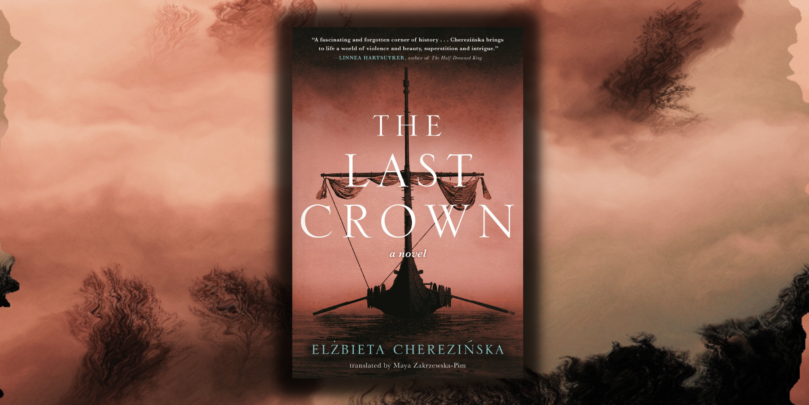







 “Someone is dead who shouldn’t be, and the wrong man is in prison.”
“Someone is dead who shouldn’t be, and the wrong man is in prison.” Laguna Beach, California, 1968. The Age of Aquarius is in full swing. Timothy Leary is a rock star. LSD is God. Folks from all over are flocking to Laguna, seeking peace, love, and enlightenment.
Laguna Beach, California, 1968. The Age of Aquarius is in full swing. Timothy Leary is a rock star. LSD is God. Folks from all over are flocking to Laguna, seeking peace, love, and enlightenment. 2017: A military transport on a secret run to dispose of its deadly contents vanishes without a trace.
2017: A military transport on a secret run to dispose of its deadly contents vanishes without a trace.
 Cadie Kessler has spent decades trying to cover up one truth. One moment. But deep down, didn’t she always know her secret would surface?
Cadie Kessler has spent decades trying to cover up one truth. One moment. But deep down, didn’t she always know her secret would surface? Areum lives life to its fullest, vicariously through the stories of his parents, conversations with Little Grandpa Jang—his sixty-year-old neighbor and best friend—and through the books he reads to visit the places he would otherwise never see.
Areum lives life to its fullest, vicariously through the stories of his parents, conversations with Little Grandpa Jang—his sixty-year-old neighbor and best friend—and through the books he reads to visit the places he would otherwise never see. Everyone knows Lily Atwood—and that may be her biggest problem. The beloved television reporter has it all—fame, fortune, Emmys, an adorable seven-year-old daughter, and the hashtag her loving fans created: #PerfectLily. To keep it, all she has to do is protect one life-changing secret.
Everyone knows Lily Atwood—and that may be her biggest problem. The beloved television reporter has it all—fame, fortune, Emmys, an adorable seven-year-old daughter, and the hashtag her loving fans created: #PerfectLily. To keep it, all she has to do is protect one life-changing secret. Sadie Way Scott has been avoiding her family and hometown of Sugarberry Cove, Alabama, since she nearly drowned in the lake just outside her mother’s B&B. Eight years later, Sadie is the host of a much-loved show about southern cooking and family, but despite her success, she wonders why she was saved. What is she supposed to do?
Sadie Way Scott has been avoiding her family and hometown of Sugarberry Cove, Alabama, since she nearly drowned in the lake just outside her mother’s B&B. Eight years later, Sadie is the host of a much-loved show about southern cooking and family, but despite her success, she wonders why she was saved. What is she supposed to do?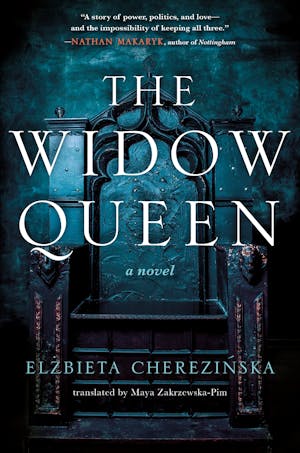 The bold one, they call her—too bold for most.
The bold one, they call her—too bold for most. April 1944, the fifty-fifth month of the war in Europe. The entire island of Britain fairly buzzes with the coiled energy of a million men poised to leap the Channel to France, the first, riskiest step in the Allies’ long slog to the heart of Germany and the end of the war.
April 1944, the fifty-fifth month of the war in Europe. The entire island of Britain fairly buzzes with the coiled energy of a million men poised to leap the Channel to France, the first, riskiest step in the Allies’ long slog to the heart of Germany and the end of the war. Bella was once a lost dog, but now she lives happily with her people, Lucas and Olivia, only occasionally recalling the hardships in her past. Then a weekend camping trip turns into a harrowing struggle for survival when the Rocky Mountains are engulfed by the biggest wildfire in American history. The raging inferno separates Bella from her people and she is lost once more.
Bella was once a lost dog, but now she lives happily with her people, Lucas and Olivia, only occasionally recalling the hardships in her past. Then a weekend camping trip turns into a harrowing struggle for survival when the Rocky Mountains are engulfed by the biggest wildfire in American history. The raging inferno separates Bella from her people and she is lost once more.
